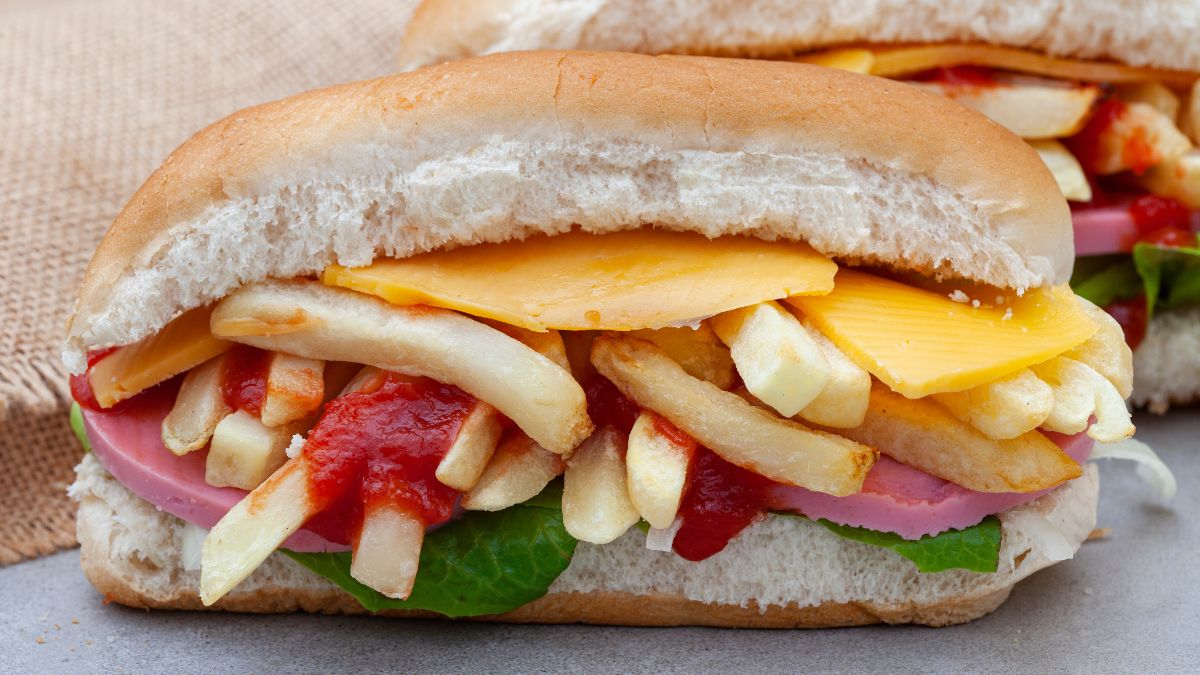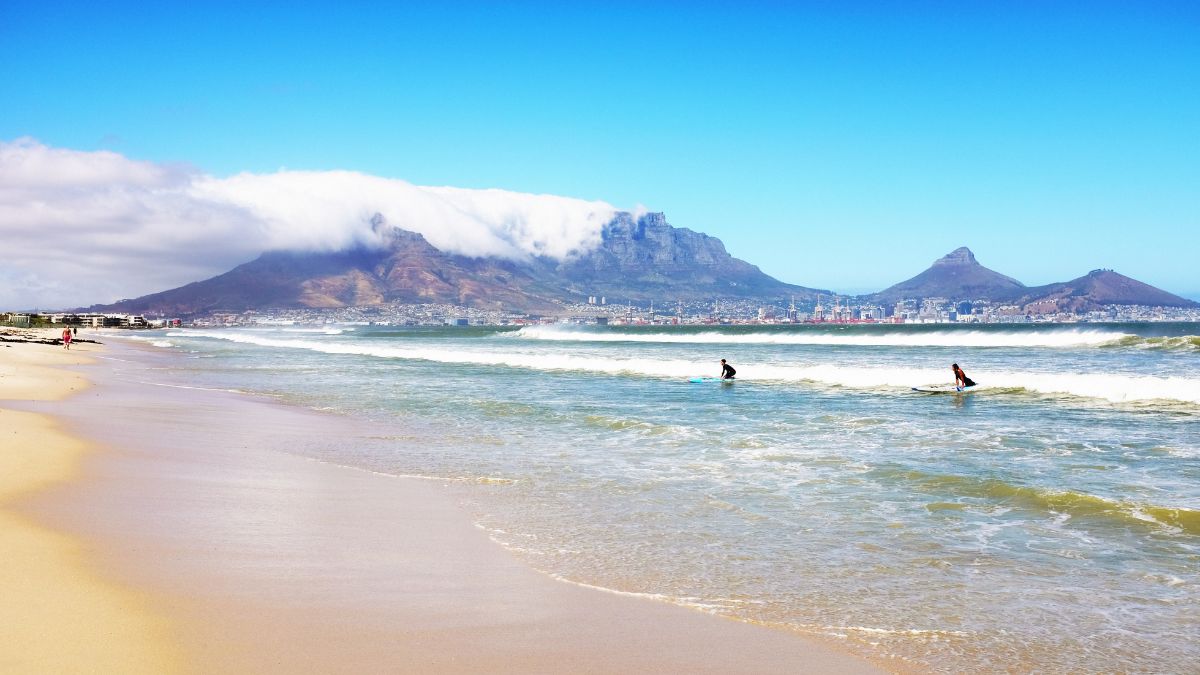With its famous Table Mountain, gleaming beaches and wildlife-rich coastal waters, the city of Cape Town is like no other. Understandably, it attracts many people seeking to relocate.
What to know before you move to Cape Town
For many people, moving to Cape Town is likely to be a quality-of-life decision – relief from the expensive, treadmill-like lifestyle they might have led in a big city like London. It largely delivers on this front but there are some things to bear in mind before taking the leap.
If you’re going to be working for a South African company your salary is likely to be lower than it was in the UK. But your living costs will probably be less, too. Some of the major industries are manufacturing, media, film, advertising, tourism, hospitality, IT and asset management, with lots of creative opportunities.
While it’s sunny a lot, it certainly isn’t hot all year round, although a ‘freezing’ winter’s day will still seem mild for most Brits. Because most homes lack central heating, it often feels colder indoors than out.
Be prepared for the stark inequalities in South Africa. In Cape Town, driving from the airport, you’ll see the relics of apartheid: township slums that abruptly end as you enter the city centre. The difference between middle-class, mostly white, people and working-class people of colour is huge – it’s the poorest people who bear the brunt of violent crime in Cape Town and live with the injustices of post-apartheid South Africa. This level of inequality, coupled with ineffective law enforcement, continues to drive crime.
Another issue is visas. South Africa is making it increasingly difficult for foreigners to work in the country. Even when you meet the criteria, visa processes are long and often result in a rejection without any given reason that you must then appeal. Many people use lawyers to help them navigate the system. To live in South Africa is to deal with a lot of needless red tape and inefficiencies – but the payoff can be worth it.
What to expect of work life in Cape Town
Cape Town isn’t a ‘work hard, play hard’ city. It’s more of a ‘work enough, then go surfing’ kind of place.
Working hours usually start at 8am or 9am and finish at 5pm or 6pm but these are often not rigid. People might turn up late in the mornings. Friday home-time traffic starts at midday.
It’s rare for people to work longer than their contracted hours, often heading out the second the clock signals the end of the day, if not earlier. This is partly because of traffic and the time it takes to get home. But it’s also sometimes a recognition of wages that don’t incentivise anyone to put in more time than they have to and, some would say, a healthier work-life balance than you might find in a city like London.
Following the Covid-19 pandemic, it’s increasingly common to work from home. For those who are self-employed or remote, co-working spaces are becoming more popular and some of these feature accommodation, social events and communal areas to meet people, which is helpful for those new to the city.
Annual leave is at least 21 days. People often use public holidays, which can fall mid-week, to make a long weekend. Those who can afford to travel will often visit Europe or North America in South Africa’s winter (Jun to September). December to mid-January is a quiet business period.
Cape Town business culture: all you need to know
Office life is generally casual in terms of how people dress and communicate. Banter and joking are part of workplace culture, often through all levels of the hierarchy.
There are policies to ensure people of colour have access to jobs; Black Economic Empowerment (BEE) was introduced after apartheid ended and big offices are usually diverse. As such, you’ll encounter different languages and cultures – the main tongues you’ll hear in Cape Town are Xhosa, English and Afrikaans, but you might also have colleagues who speak Zulu or any number of European languages. Business, though, is generally conducted in English.
Afterwork drinks are a good opportunity to get to know your colleagues outside the office. Capetonians, while friendly, are notoriously cliquey, so it can take a while to make friends.
Business meetings often take place in coffee shops and cafés – even during a morning surf. Relationships and networking are important parts of business in South Africa, where trust is valued. Although calls are often via Zoom, there’s still a preference for meeting face to face, especially when building new relationships. Handshakes or, since the pandemic, fist bumps are the usual gestures of greeting.
Negotiations aren’t too fierce; it’s more important to come to a mutually beneficial agreement.
Deadlines are often flexible, especially in industries such as construction so take estimated delivery times with a pinch of salt.
What’s it like living in Cape Town?
Food and drink

One of the joys of living in Cape Town is its culinary scene. Barely a month goes by without a new hotspot opening, from Mexican joints, pizzerias and vegan cafés to sushi bars, shawarma stands and Ethiopian restaurants.
One of the dishes most linked to Cape Town is the Gatsby – a foot-long sub stuffed with variations of meat, chips, salad, sauce and fried eggs. It’s a beast best saved for when you’re ravenously hungry.
There’s also a strong Cape Malay food scene. Visit the neighbourhood of Bo-Kaap for flavoursome samoosas, masala steak sandwiches, curries and koesisters (a fried, spiced dough ball coated in sugar that’s a delicious treat).
When it comes to drinks, Cape Town is a stone’s throw from the world-famous wine valleys of Stellenbosch and Franschhoek, so if you like wine, you’ll be spoilt for choice.
As you might expect, there are local craft beer breweries and gin makers, but also an increasing number of non-alcoholic options in restaurants and bottle stores.
Coffee is taken seriously in Cape Town and you won’t struggle to find a great flat white at one of the city’s many independent shops. Don’t expect a Starbucks on every corner.
Cost of living
Cape Town has a high cost of living by South African standards.
Property is particularly expensive. Capetonians often need to relocate to the further-out suburbs to find an affordable house with a garden with the downside of longer commutes for those with offices in the Central Business District. With limited public transport options, people can spend hours sitting in traffic each day and with the price of petrol on the rise, that can be costly.
Groceries are typically more expensive than in the UK, which might be a surprise. Eating out is much cheaper, due to the low cost of labour.
You’ll also need to factor in health insurance. There is a public health service in South Africa, but it is pushed to its limits. Most people who can afford to do so have private insurance.
Outdoor life

Outdoor activities are a massive part of Cape Town culture and for many it’s the reason they choose to move here.
Table Mountain and the peninsula range are crisscrossed by trails that suit all abilities – from those working on their fitness to mountain goats who scale hair-raising climbs before breakfast. Outdoorsy types often hike to watch the sunrise with a coffee on the mountain before heading to the office or will go for a trail run after work. There’s a big, friendly community around the trails, whether you like to hike, climb or run. The best way to access these groups is via Facebook or Instagram.
There are loads of groups to join and guides who can be hired to show you around. Table Mountain isn’t that high – at 1,086m, it’s the same as Snowdon – but it can be warm and sunny in the city and freezing and windy with zero visibility at the top. Always make sure you are prepared and go with other people who know the mountain.
And then there’s the ocean. The Atlantic Ocean runs along the flank of the city and is very cold. ‘Refreshing’ tidal pool dips are often followed by a coffee to warm up. People also surf along the Atlantic coast or kayak and standup paddleboard when the ocean isn’t too rough. In the south of Cape Town, the kelp forests of False Bay are popular with scuba divers and freedivers.
Safety
There’s a lot of crime in South Africa. The city centre and inner suburbs of Cape Town are among the safest urban areas in the country, but it still pays to be vigilant.
Much of this is just common sense and things you’d likely do in other cities around the world: don’t walk with your phone out, keep valuables out of sight, be aware of your surroundings, and don’t walk after dark or alone on isolated hiking trails. If you drive, don’t leave anything of value in your car – ideally, keep non-valuable items out of sight, too – and don’t have your window down at traffic lights. Make sure you have insurance coverage for your belongings and car.
The Cape Flats are south-east of the city centre and where there is the worst of Cape Town’s crime, with gang shootings, murders and rapes all horribly common. It’s a hangover of apartheid that the poorest people, people of colour, experience this extreme level of violence, while the middle classes in affluent suburbs are mostly dealing with non-violent crimes such as theft and muggings. Be careful about visiting areas you don’t know and ideally go with someone who knows the neighbourhood or seek advice first.
You can read more from our Working Around the World series here.
With its famous Table Mountain, gleaming beaches and wildlife-rich coastal waters, the city of Cape Town is like no other. Understandably, it attracts many people seeking to relocate.
What to know before you move to Cape Town
For many people, moving to Cape Town is likely to be a quality-of-life decision – relief from the expensive, treadmill-like lifestyle they might have led in a big city like London. It largely delivers on this front but there are some things to bear in mind before taking the leap.
If you’re going to be working for a South African company your salary is likely to be lower than it was in the UK. But your living costs will probably be less, too. Some of the major industries are manufacturing, media, film, advertising, tourism, hospitality, IT and asset management, with lots of creative opportunities.

